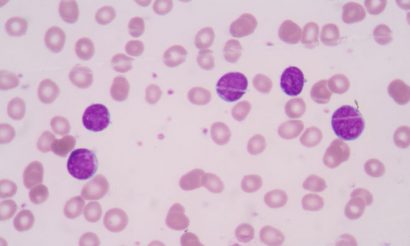Daiichi Sankyo enrols first patient in Phase III acute myeloid leukaemia trial
Posted: 17 October 2016 | | No comments yet
Daiichi Sankyo has enrolled their first patient in the global phase 3 QuANTUM-First study evaluating the oral FLT3-ITD inhibitor quizartinib in patients…


Daiichi Sankyo has enrolled their first patient in the global phase 3 QuANTUM-First study evaluating the oral FLT3-ITD inhibitor quizartinib in patients with newly-diagnosed FLT3-ITD-positive (+) acute myeloid leukaemia (AML).

Primary endpoints
QuANTUM-First is a randomised, double-blind, placebo-controlled study evaluating quizartinib in combination with induction and consolidation chemotherapy and as maintenance monotherapy. The primary endpoint of the study is event-free survival. Secondary endpoints include overall survival, complete remission rate, composite complete remission rate and the percentage of subjects achieving a complete remission with no evidence of minimal residual disease.
FLT3-ITD genetic mutation
Approximately 30% of patients with AML have a genetic mutation called FLT3-ITD, which is associated with more aggressive disease, resulting in increased relapse rate and reduced overall survival compared to those without this mutation.
FLT3-ITD mutations are more common than FLT3-TKD mutations, which occur in approximately 10% of AML patients. There is controversy as to whether FLT3-TKD mutations carry as poor a prognosis as FLT3-ITD mutations.
Currently, there are no approved targeted treatments for FLT3-ITD+ AML, with little change in the treatment of AML for the past 30 years.
“It is well established that patients with mutated AML have an overall worse prognosis compared to those without this specific mutation,” said Harry Erba, MD, PhD, Chair of the QuANTUMFirst Committee and Professor of Medicine and Director of the Haematologic Malignancy Program at the University of Alabama.
“In this study we are evaluating whether adding 2 quizartinib to standard first-line chemotherapy will help delay or prevent relapse, which in turn may impact overall survival in patients with FLT3-ITD+ AML.”
Antoine Yver, MD, MSc, Executive Vice President and Global Head, Oncology Research and Development, Daiichi Sankyo, added, “Additionally, we also are looking to combine quizartinib with other investigational agents in our pipeline such as our MDM2 and BRD4 inhibitors where science suggests combining different mechanisms of action may help improve outcomes.”
QuANTUM-First is expected to enrol more than 500 patients between 18 and 75 years of age in the Americas, Europe and Asia-Pacific.
More information about the study is available at ClinicalTrials.gov or www.QuantumFirstStudy.com.



